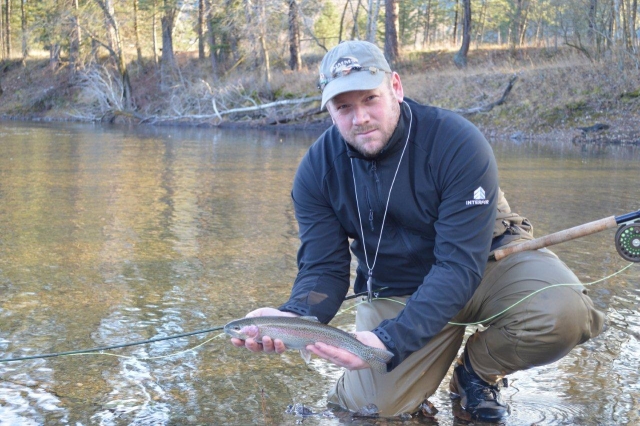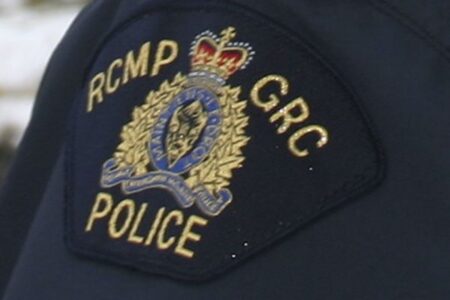Kettle River Q&A - How are the fish doing in our rivers?
These are special rivers. Providing some of the best river fishing opportunities in the region, the Kettle, West Kettle and Granby support several important fish stocks, including seven species at risk and native rainbow trout stock that grow larger than 50 cm.
However, the quality of the Kettle for fishing has deteriorated over the last two decades, as shown by the low abundance and small size of rainbow trout and regular fish kills of trout and whitefish during droughts.
Recently, the Stakeholder Advisory Group for the Kettle River Watershed Management Plan learned about the state of our fish from Tara White, Senior Fisheries Biologist with the Ministry of Forests, Lands & Natural Resource Operations (FLNRO). White shared key findings from a major study investigating factors that limit the production of rainbow trout in the Kettle River.
“Water and land management practices, limited available habitat, overharvesting, and low seasonal flows with high temperatures all share some of the blame,” said White.
The greatest constraint for trout is the lack of refuge habitat such as deep pools for adult and sub-adult fish during the high temperatures and low flows in mid- to late-summer. Water temperatures of 19-26°C can harm or kill trout, and during low flows from late July into August the Kettle River frequently gets above 22°C and occasionally above 25°C.
It gets worse.
During low river flows the amount of habitat available for fish declines rapidly. When deep pools are the only places the fish have refuge, they are easy pickings for anglers who may not know or follow the fishing regulations. And even when the fish are released, the stress and injury from the hook and handling on top of the temperature stress can lead to death.
So what can be done? At a minimum, all anglers must be licenced and follow the regulations that are posted at http://www.env.gov.bc.ca/fw/fish/regulations/. When the water is warm, consider not fishing in the rivers at all, and take part in stewardship and habitat improvement projects instead. Anglers should also learn how to handle fish properly when doing catch and release.
“When practicing proper catch and release, anglers need to remember to keep the fish in the water, get their photographer ready, hold the fish up for a few seconds to take a photo, then place the fish back in the water,” said Brad Siemens, Fisheries Director for the Grand Forks Wildlife Association. “The longer the fish is held out of the water, the more stress to the fish, and likely higher mortality, especially in high water temperatures.”
“Also, anglers need to be reminded not to drag their fish up onto the shore – a bare wet hand is the best for a released fish. Some nets actually strip the fish of their slime coat, but new net coatings have made leaps and bounds in this matter.”
The Kettle River Watershed Management Plan will include a number of recommendations and actions that protect fish and fish habitat, including water conservation, education, and cooperation with the province and recreation and conservation groups to protect native fish stocks and restore habitat.
At the provincial level, FLNRO is working on recommendations for changes to fisheries regulations and water management to better protect the fish in the Kettle and Granby Rivers. These recommendations include implementing water conservation measures, restricting water use during low flows, developing off-stream storage, regulating groundwater use, and changing fisheries regulations to include in-season closures and ‘catch and release’ only. White’s final report will be available in spring.
“This fish was released for another angler to enjoy,” said Siemens. “Once a fish is removed from the river system, it is gone forever. The Kettle River is one of BC’s most endangered rivers – we need to keep these ‘canaries in a coal mine’ alive, for future generations to enjoy.”
– Graham Watt is the coordinator of the Kettle River Watershed Management Plan for the RDKB, and is working with a Stakeholder Advisory Group from across the region to develop the plan. Email plan@kettleriver.ca


























Comments